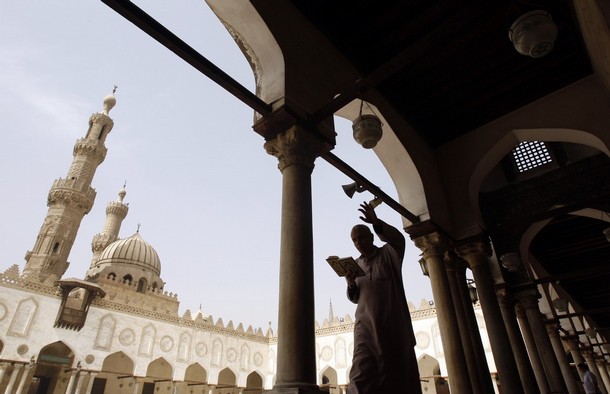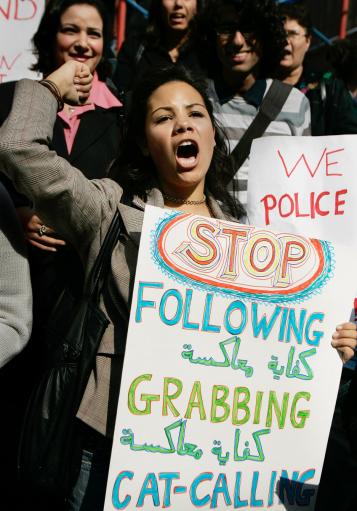
In the Arab world the specialist religious institutions no longer turn out scholars of the stature of Jamal al-Din al-Afghani, Muhammad Abduh, Tahir Haddad, Tahir Ashour, Muhammad al-Fadil Ashour, Ali and Mustafa Abd al-Raziq, Amin al-Khouli, or Aisha Abd al-Rahman and others.
THE REASON IS CLEAR enough: it is the change from earlier open-minded religious curricula to the current hard-line, ideologized religious curricula. These are what are being taught today – and what we learn, we pass on. Meanwhile, most of our religious scholars (particularly those from Egypt and the Gulf) have kept themselves busy issuing reams of their own religious fatwās of the quick-fire kind, answering to little more than small benighted minds and the masses, practicing a folk religiosity of Sufi orders, superstitions, legends, customs and inherited lore.
Their aim is to display dogged enmity towards the West and its cultural and political values, to establish that these values may be dispensed with, and to divert attention instead to these shaykhs, granting them fame and stardom. The Algerian Shaykh Farkous, who forbade the eating of Zulābiyā pastries during last Ramadan, became more celebrated in his country than the singer Cheb Khaled or the statesman Ahmed Ben Bella. At the Cairo International Book Fair in 2006 camel urine was sold for nine Egyptian guineas a bottle – the product of a Saudi-Egyptian investment company in Egypt which was peddling this concoction as a cure, no less, for cancer, inflammation of the liver and Bird Flu!
All this, and more besides, has gone on in place of our scholars applying themselves to major issues such as liberalism, secularism, modernity, globalization and other concepts of the modern age. Nor do they make any contribution to raising the status and rôle of humankind in building up civilization, prioritizing man’s intellect in determining events and facts, or in classifying these as the European scholars of the Enlightenment did. They have not made any attempts to reconcile these concepts with Islam, as Christians did in the 19th and 20th centuries and still do today. Similarly, they have not attempted to make Islam accommodate these new concepts or renew and restore the faith in the light of them.
The Islamic faith and its fatwās have been traded upon and exploited for livelihood. Some scholars in the Gulf region demand millions per year for presenting monotonous repeat religious programmes during Ramadan, or for signing off Islamic bank balances and sealing them with the stamp of Islamic legitimacy. Just as Shaykh Qaradawi, to take an example, does when he acts as a Sharī‘a consultant for the Al-Baraka al-Māliyya association owned by the Saudi businessman Salih Abdallah Kamil.
The Islamic faith and its fatwas have been traded upon and exploited for livelihood
Other clerics endeavour to make use of religion to gain political power. In many cases, particularly since 1990 following the Iraqi-Kuwaiti Gulf crisis, many Gulf clerics and those of Egypt’s Al-Azhar University have turned into Arab political stars. After the September 11 2001 disaster and the emergence of Islamic groups with armed militias, religious clerics came to be more and more politically prominent, particularly when they issued their own religious fatwās licensing or forbidding jihad against foreign forces in Iraq and Afghanistan. To take one example, in 2003 Shaykh Gamal al-Banna issued a prohibition against resisting the foreign forces that came to Iraq to liberate the people from tyranny and dictatorship. He said that the just infidel is superior to the unjust Muslim, and that in this case justice is to be preferred over religiosity. Al-Banna was considered to be one of the enlightenment scholars even though it was known that he had not studied at, or graduated from, al-Azhar.
All this was at a time when Shaykh Yusuf al-Qaradawi had licensed the jihad against these forces, and called for mujāhidīn to stream into the country, irrespective of the reason for these forces being there or their ultimate aims. This is what the Saudi security authorities term ‘incitement terrorism’. In all they refer to three types of terrorism:
- Lethal terrorism – undertaken by suicide bombers;
- Incitement terrorism – carried out by regurgitation scholars;
- Consolidation terrorism – the most dangerous type, carried out by scholars and preachers with a following among those who call for terrorism, defend it and encourage it. They recite fabricated prophetic Hadīth and goad their supporters on to undertake the journey to the Land of Jihad.
It is therefore hardly surprising that the regurgitation scholars stand as one of the operative causes of the following problems:

Suggested Reading
- The rise in unemployment levels in the Arab world, as a result of the churning out of a large number of graduates from religious colleges and institutions. Such graduates cannot find sufficient employment, while most of them contribute to the ‘incitement terrorism’ and ‘consolidation terrorism’ mentioned above;
- Rising levels of poverty and destitution in the Arab world, as a result of the concentration on religious education, and the production of a large number of religious scholars instead of experts and scientists in manufacturing and technology;
- The rise in aversion and enmity to Islam as a result of these inane fatwās which the regurgitation scholars issue on their own authority, fatwās which have turned others in the West and the East against Islam and brought down mockery on these imbeciles of Islam;
- The transformation of the Arab street into a religious street, which does not listen to, nor wait to be convinced by, nor accepts criticism from, anyone other than certain scholars with the backing of politico-religious parties
. This street has turned into a support mechanism and an active weapon in the hands of these parties; - The rise in depravity and assaults on women in market streets and schools – the result of severity and religious extremism, which isolates men and women from each other right from childhood from the consideration of women as a forbidden taboo whom males may not approach, and the restrictions placed on the means of lawful work and marriage. The rise in the level of jurisprudential depravity is typified by the legitimization of ‘Misyār marriage’ or ‘summertime marriage’, or ‘business marriage’ or ‘friends’ marriage’ and so on. These fatwās seek to alleviate the severity of sexual deprivation for men and women. But it is the very same essence of depravity. For marriage is the foundation of the family, and is more than merely a ruling regarding sexual pleasure.
This class of religious shaykhs are scholars of regurgitation, not of enlightenment.



